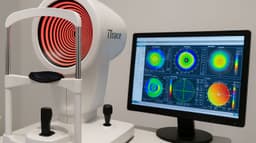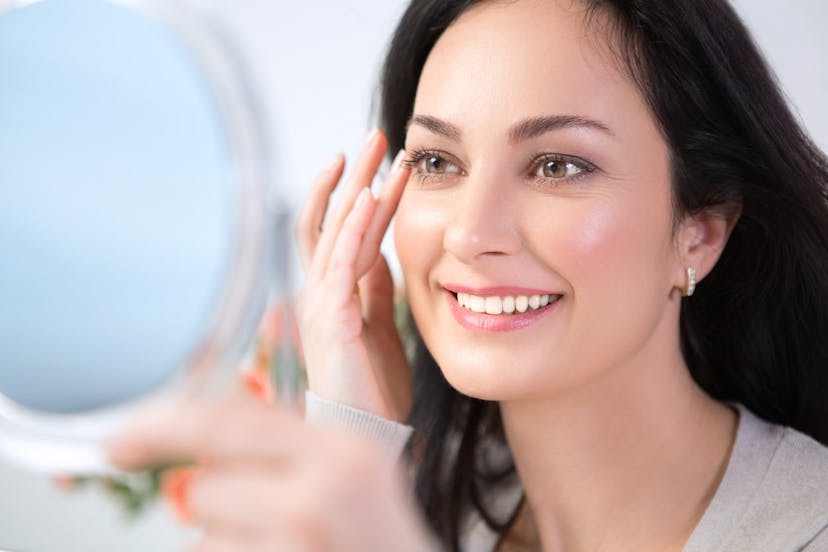
The Best Vitamins and Minerals for Eye Health
Protect and Strengthen Your Vision Naturally
Your eyes are among the most complex and sensitive organs in your body — and just like your heart, brain, or bones, they rely on proper nutrition to function at their best. While modern life often pushes vision to its limits with hours spent in front of screens, the role of nutrition in maintaining long-term eye health is often overlooked. A diet rich in specific vitamins and minerals can help protect your eyes from age-related decline, reduce the risk of chronic eye conditions, and support overall visual performance. In this guide, we’ll explore the best vitamin and mineral supplements scientifically known to benefit your vision and help keep your eyes clear, strong, and healthy.
Best Minerals For Eye Health
Certain vitamins play a crucial role in maintaining healthy vision, protecting the eyes from oxidative damage, and supporting long-term eye function. The table below highlights the most effective eye-supporting vitamins first, along with their benefits and natural food sources. Moreover, a well balanced diet rich in colorful vegetables would contain a lot of these supplements.
| Mineral | Description | Food Sources |
|---|---|---|
| Zinc | Essential for transporting vitamin A from the liver to the retina, where it helps produce melanin, a protective pigment in the eyes. | Oysters, beef, pumpkin seeds, lentils, chickpeas |
| Selenium | An antioxidant that may help prevent cellular damage in the eye caused by free radicals, supporting overall eye health. | Brazil nuts, sunflower seeds, mushrooms, brown rice |
| Copper | Works with zinc to maintain healthy tissues in the eye and helps prevent macular degeneration. | Liver, shellfish, nuts, seeds, whole grains |
| Magnesium | Supports proper muscle function including those that control the eyes; deficiency may contribute to twitching or fatigue. | Leafy greens, nuts, seeds, whole grains, avocados |
| Calcium | Important for the structural integrity of eye tissues and plays a role in intraocular pressure regulation. | Dairy products, leafy greens, almonds, tofu, fortified plant milks |
Best Vitamins for Eye Health
Minerals are essential for various processes that keep your eyes functioning at their best — from transporting nutrients to maintaining tissue integrity. Below, we’ve listed the top minerals for eye health, ordered by their impact, along with where to find them in your diet.
| Vitamin | Description | Food Sources |
|---|---|---|
| Vitamin A | Vital for maintaining a clear cornea and supporting night vision. Deficiency can lead to dry eyes and even blindness. | Carrots, sweet potatoes, spinach, liver, eggs |
| Vitamin C | A powerful antioxidant that helps protect the eyes from oxidative stress and supports healthy blood vessels in the eyes. | Oranges, strawberries, bell peppers, broccoli, kale |
| Vitamin E | Protects eye cells from damage caused by free radicals. May slow the progression of age-related macular degeneration. | Almonds, sunflower seeds, hazelnuts, spinach, avocado |
| Vitamin D | May help reduce the risk of age-related macular degeneration and dry eye disease. Also plays a role in immune health. | Fatty fish, fortified dairy, egg yolks, sunlight exposure |
| B Vitamins (B6, B9, B12) | Help lower homocysteine levels in the blood, potentially reducing the risk of macular degeneration and supporting optic nerve health. | Poultry, eggs, leafy greens, legumes, fortified cereals |
| Lutein & Zeaxanthin (Carotenoids) | Act as natural antioxidants in the eye, filtering harmful blue light and protecting the retina. | Kale, spinach, corn, eggs, orange peppers |
Research Insights on Eye Health Supplements
Extensive clinical research underscores the role of specific vitamins and minerals in supporting eye health, particularly in slowing the progression of age-related macular degeneration (AMD). The Age-Related Eye Disease Study (AREDS), conducted by the National Eye Institute, demonstrated that a daily supplement containing high doses of vitamin C (500 mg), vitamin E (400 IU), beta-carotene (15 mg), zinc (80 mg), and copper (2 mg) reduced the risk of progression to advanced AMD by about 25% over five years in individuals with intermediate AMD or advanced AMD in one eye. Wikipedia – Die freie Enzyklopädie+4Wikipedia+4University of Michigan Health+4
Building upon these findings, the AREDS2 study refined the original formula by replacing beta-carotene with lutein (10 mg) and zeaxanthin (2 mg), due to concerns about beta-carotene increasing lung cancer risk in smokers. The updated formulation maintained the protective effect against AMD progression and was deemed safer for a broader population. JAMA Network
These studies collectively affirm that specific combinations of antioxidants and minerals can play a significant role in preserving vision and slowing the advancement of degenerative eye conditions.
For more detailed information, My-iClinic recommends further reading with the National Eye Institute's overview of the AREDS and AREDS2 studies here: National Eye Institute.
Degenerative Eye Conditions and Treatments
As we age, our eyes become more vulnerable to degenerative conditions that can affect vision quality and overall eye function. The following table outlines the most common eye conditions by age group and highlights the latest advanced treatments — including laser procedures and implantable lenses — that can help manage or correct these issues:
| Eye Condition | Common Age Range | Possible Treatments |
|---|---|---|
| Age-Related Macular Degeneration (AMD) | 50+ | No cure, but progression may be slowed with AREDS2 supplements; laser photocoagulation in select cases |
| Cataracts | 60+ | Microincision cataract surgery with intraocular lens (IOL) replacement |
| Glaucoma | 40+ | Laser trabeculoplasty, MIGS (Minimally Invasive Glaucoma Surgery) |
| Presbyopia | 40+ | Laser vision correction & refractive lens exchange (RLE) |
| Myopia (Severe/Nearsightedness) | Teen to 40s | Implantable Contact Lenses (ICL), SMILE, LASIK, LASEK |
| Hyperopia (Farsightedness) | All ages, often diagnosed in early life | LASIK, LASEK, ICL, RLE |
| Astigmatism | All ages | LASIK, LASEK, SMILE, ICL |
Take the Next Step Toward Healthier Vision
At My-iClinic in North London, we offer cutting-edge diagnostics and world-class treatments for a wide range of eye conditions — all under one roof. Whether you're exploring options for laser eye surgery, managing a degenerative condition, or simply want expert advice, our experienced consultants and state-of-the-art equipment are here to help. Book your consultation today and discover how advanced eye care can restore your confidence — and your clarity.
Find out more by Speaking to our team









